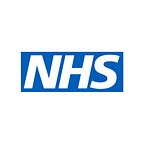Pronouns: little things that can make a big difference
My name is Tash, I’m trans and my pronouns are they/them. Today, I’m sharing with you why International Pronouns Day, held every October, is important.
When COVID-19 began, I was approaching a decade of working at the Royal Free Hospital in London. Our HIV research team was swiftly diverted to conduct COVID-19 clinical trials, and the following 6 months were some of the most unpredictable and unexpected days of my life. While there were many things that made it this way — the colleagues who became a family, the complete reconfiguration of our hospital, the things I saw that could never be forgotten — it was my own experience of having COVID-19 that changed things for me.
In June, I contracted COVID-19 and whilst self-isolating at home one night, I began to struggle to breathe. My partner, our friends, and the NHS website all urged me to attend A&E, yet my fear of transphobia stopped me. I was afraid to be a debate or a spectacle. I was afraid people who knew me at work would find out I was trans. I was afraid that all the bad things my trans friends had experienced in hospital would happen to me.
There are few things as terrifying as realising you can’t breathe, but I realised in that moment something had scared me more — I had chosen to avoid a healthcare service I knew so well, out of fear.
Soon after this realisation, I began my new job as LGBT Health Officer for NHS England and NHS Improvement. I wrote about being trans in my application and I came out at work for the first time in my life — properly out: introducing myself with my pronouns in meetings, including my pronouns in my email signature to colleagues, and to strangers. Now my partner reminds me of that night, of how afraid they were, and how afraid I was. How in that moment, not being able to catch my breath became less significant than the enormity of being trans in hospital.
Pronouns may feel like a small thing for some, but they’re not a small thing for me. If someone introduces themselves with their pronouns, it helps me to realise that I’m not the odd one out in the room, I’m not a burden and this is a space is for me, too. Research shows the risks of misgendering trans youth, whilst also showing that addressing people by their chosen pronouns is linked to reduced depressive symptoms, suicidal ideation and behaviour amongst trans youth. This is why I’m asking you to use those tiny words that can make the biggest difference to a patient, a colleague, a friend or a stranger — your pronouns.
Thanks to Eddy Phillips, our NHS England & Improvement LGBT Network Trans lead, the ‘Hello my name is..’ official badge providers have recently added the option for individuals to include their pronouns on their name badges. If I had seen people wearing these in my hospital, it could have made all the difference to my decision that night. The badges are a symbol of understanding, of respect, of seeing me and my trans community — You can get yourself a badge here, here or here (Each site supports a different charity so have a browse and pick and badge!).
I hope after reading this, my colleagues in the NHS consider buying one of these badges. I hope everyone reading this considers adding their pronouns to email signatures and stating them in meetings. I hope you make clear statements about your support for trans people, and I hope this will mean that the next time a trans person is faced with the decision I was, fear will not override their need for care.
As mentioned previously, pronouns are a simple thing that can achieve so much, but I understand that for some, understanding the importance of them is not as simple. If you’d like to find out more about the importance of pronouns, or need help explaining to others, I’ve provided some useful links below:
· What are pronouns and why are they important?
· What should I do if I get somebody’s pronouns wrong?
· Why should I put pronouns on my email signature?
To get in touch with the LGBT Health Team, email us at england.lgbtadvisor@nhs.net.
Tash Oakes-Monger is an LGBT Health Officer for NHS England and NHS Improvement
